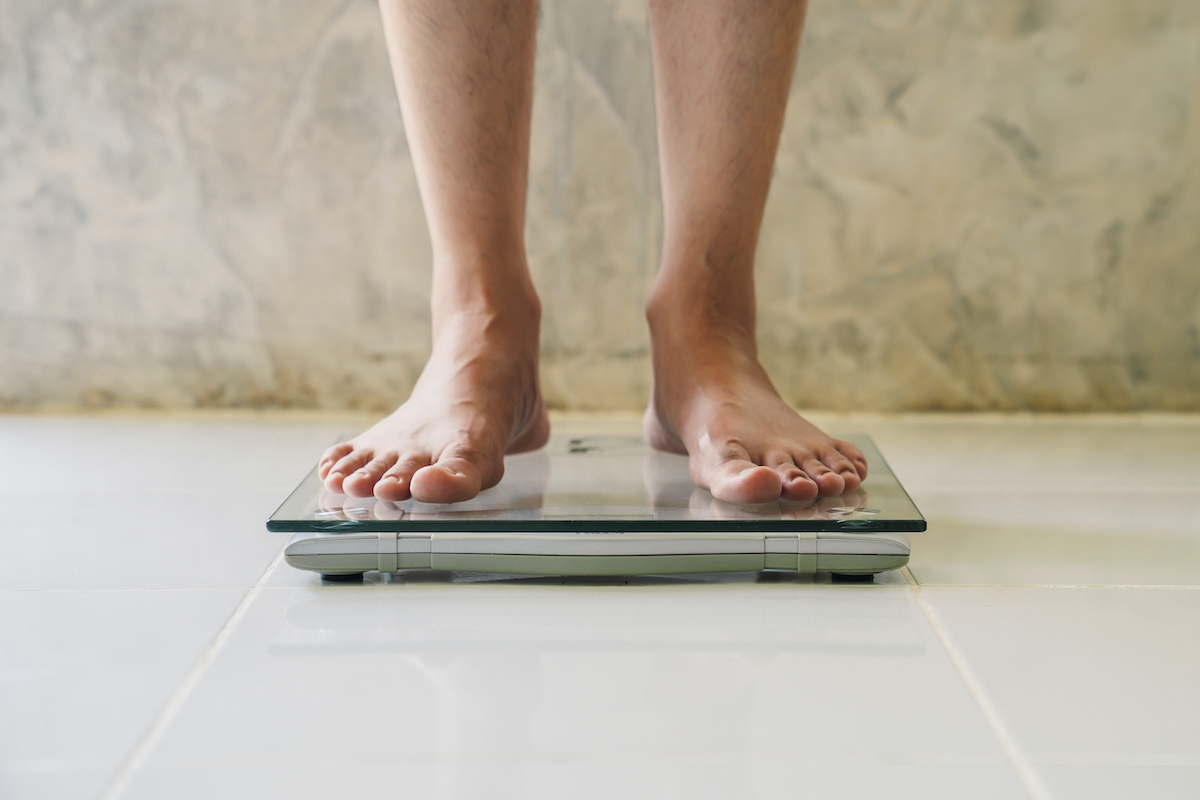Talking about eating problems – conscious limited food intake and excessive fear of gaining weight – we usually think about women. It is widely assumed that women are especially exposed to a wave of fad diets or losing weight due to looking after their figures. This seemingly female problem also affects men. Anorexia is a more and more common occurrence in men.
- Do symptoms of men suffering from anorexia differ from those in women?
- How to diagnose anorexia in men?
- ‘Manorexia’ – Anorexia nervosa in males – what do we know about it?
Since when do men suffer from anorexia?
Even though we have less data regarding the prevalence of anorexia in men in comparison to women, it is certain the problem of eating disorder is nothing new in either of the sexes.
For centuries idealised figures – slender with well-defined muscles and practically zero amount of fatty tissue have been reinforced in society. Such models have spread in different sources, starting with newspapers and advertisements, via tv series and full-length movies. This way such ideals of beauty were reinforced, causing many to start the pursuit of a slender figure.
Losing a few kilograms doesn’t seem to be a harmful idea. However, the problem occurs when we reach the normal weight according to BMI (18,5 – 24,99) and we still want to lose more weight. Anorexia nervosa in men is nothing new. Even though we do not have data relating to eating disorders in men from the XIX and XX centuries, it would be difficult to rule out that such a problem didn’t exist. Nowadays it is said that eating disorder such as anorexia can affect even up to 20% of men. Unfortunately, we can suspect that such data is incomplete – men ask for help less often, therefore anorexia in men is diagnosed much later than in women.

Anorexia in men – Manorexia
Eating disorders can occur in both genders, irrespective of age. For many years we wronglyidentified anorexia only with women. However, today we know it can also affect boys and grown-up men.
Its causes and mechanisms of development should be examined individually in each patient. Reducing and then maintaining body mass to smaller and smaller values is the aim of the patient suffering from anorexia.
Anorexia occurs in women more often than in men (approximately 10 times more), even though in recent timesthe occurrence of this disorder in men is increasing.
Source: Practical Medicine
Even if until noweating disorders were associated with women, statistics clearly show that one third of patients reporting eating problems are men. Even though such data might be underestimated, we can hope that increased awareness in society will cause men to seek medical help more often.
How to diagnose anorexia in men?
The main symptoms of anorexia are practically the same in both genders. Depending on the person’s earlier lifestyle, we can have difficulty in recognizing first symptoms of anorexia. Additionally, in people leading healthy lifestyles, excessive desire to attain an ideal figure and sticking to restricting diets won’t cause suspicions. Those more at risk are the groups of people for whom a slender figure is required – for instance athletes, actors and models, and due to this their diagnosis can be delayed.
The symptoms connected with anorexia are:
- excessive loss of weight
- following restrictive diets
- intensive training a few times a week
- aggressive response if the subject of food is broached
- unwillingness to eat meals with others
- Obsessivemonitoring of calories
It might occur that the person suffering from anorexia does not feel hunger– however it is just the opposite! Refusing meals is not connected with a loss of appetite in the patient, but the fear of gaining more weight and sense of guilt for eaten calories – even in the patient with insufficientbody mass.
Moreover, anorexia in men can lead to many disorders in thenormal functioning of the body. These can be hormonal imbalances, frequent headaches and lack of concentration and other side effects caused by vomiting or taking laxatives.

Anorexia in men – the consequences
Anorexia can develop for months or even years before it is diagnosed, and treatment implemented. Malnutrition and weight deficiency can result in many negative effects. Therefore, untreated anorexia in men can result in:
- low blood pressure
- heart rhythm disorder (arrhythmia)
- weakening of heart muscle
- avitaminosis
- hormonal imbalance
- infertility
- electrolyte disturbances
- osteoporosis
- constipation, stomach aches or ulcers
- kidney and liver diseases
- anaemia
- dehydration
Untreated anorexia can result in serious damage to the body or even death. The sick person often doesn’t notice they have a problem, therefore support of loved ones is invaluable. Active support to seek help will speed up the diagnosis and start the treatment. As shown here, anorexia in men in every stage of life is a serious problem and requires professional help.
Treating anorexia in men – who to turn to?
Anorexia in men can be diagnosed at different stages. The duration of treatment depends on the degree of malnutrition and effects of restrictive diet. One thing we can be sure of – treating anorexia is not just one appointment with a specialist, but a whole process. It is not only restoring healthy body mass, but also:
- treating the effects of malnutrition
- education on basic rules of healthy eating
- introducing abalanced diet
- compensating nutrition deficiency
A team of specialists including family doctor/GP, psychologist, psychiatrist and dietitian should be involved in the process of treatment of anorexia. Some cases require also help from physiotherapists and other specialist doctors.
In some cases,hospitalization of the patient is necessary. It happens in cases where low weight posesa risk to the patient’s health and life; and the degree of damage makes home treatment impossible.
Treatment of anorexia does not only mean putting on weight and restoring nutrients deficiency. Eating disorders start in our heads and continue until we receive appropriate help from a psychologist or a psychiatrist.
Change in our attitude, approach to life and our own body will allow to control our negative body image. Learning of self-acceptance and changing negative patterns of thinking constitutes part of the therapy carried out by the specialist who is an expert in eating disorders.
Anorexia in men – what can we do?
- If you notice worrying symptoms – you can seek help from your GP or specialist in internal medicine.
- Contact a psychologist who specialises in eating disorders. You can make an appointment in person in the clinic or online. The IN-MED Centre offers psychotherapeutic and psychiatric help. You will find theinformation on how to contact us HERE.
- Do not be afraid to seek help from your loved ones. Treatment of eating disorders is a lengthy process, therefore support from friends and family can be essential.
- Find a support group in your area – getting to know people who share the same problem can help you to get used to the diagnosis and motivate you to further treatment.
Jak dostać się do naszego Ośrodka?
Jeśli interesuje Cię nasza oferta lecznicza i diagnostyczna, zapraszamy do naszego Ośrodka IN-MED, jesteśmy na Bemowie, ulica Pełczyńskiego 5 lok 78 w Warszawie.

